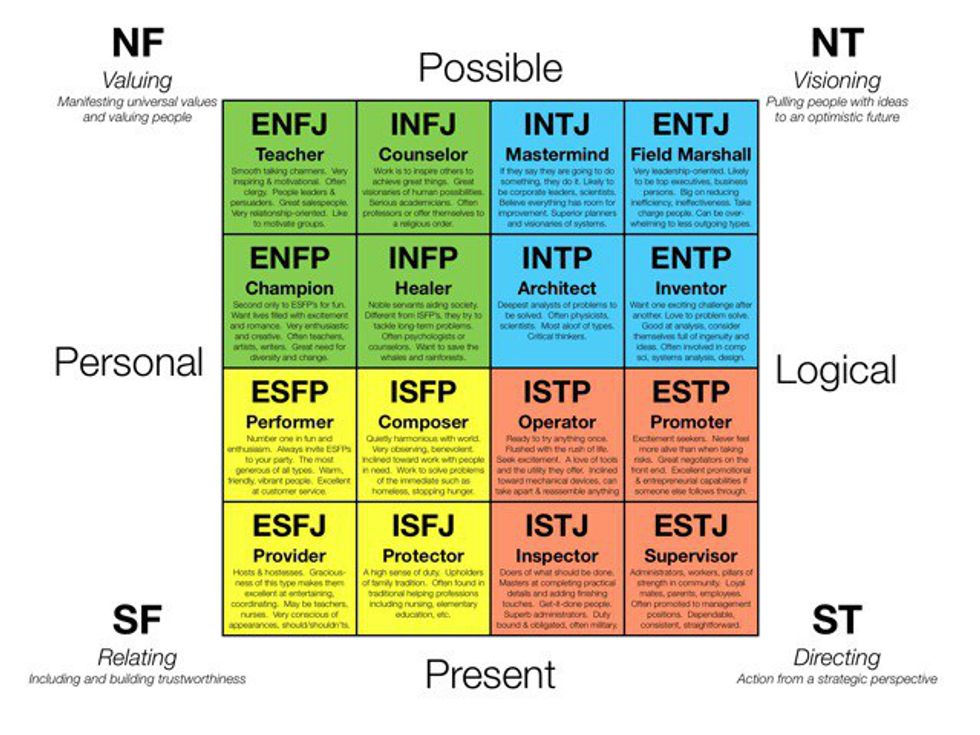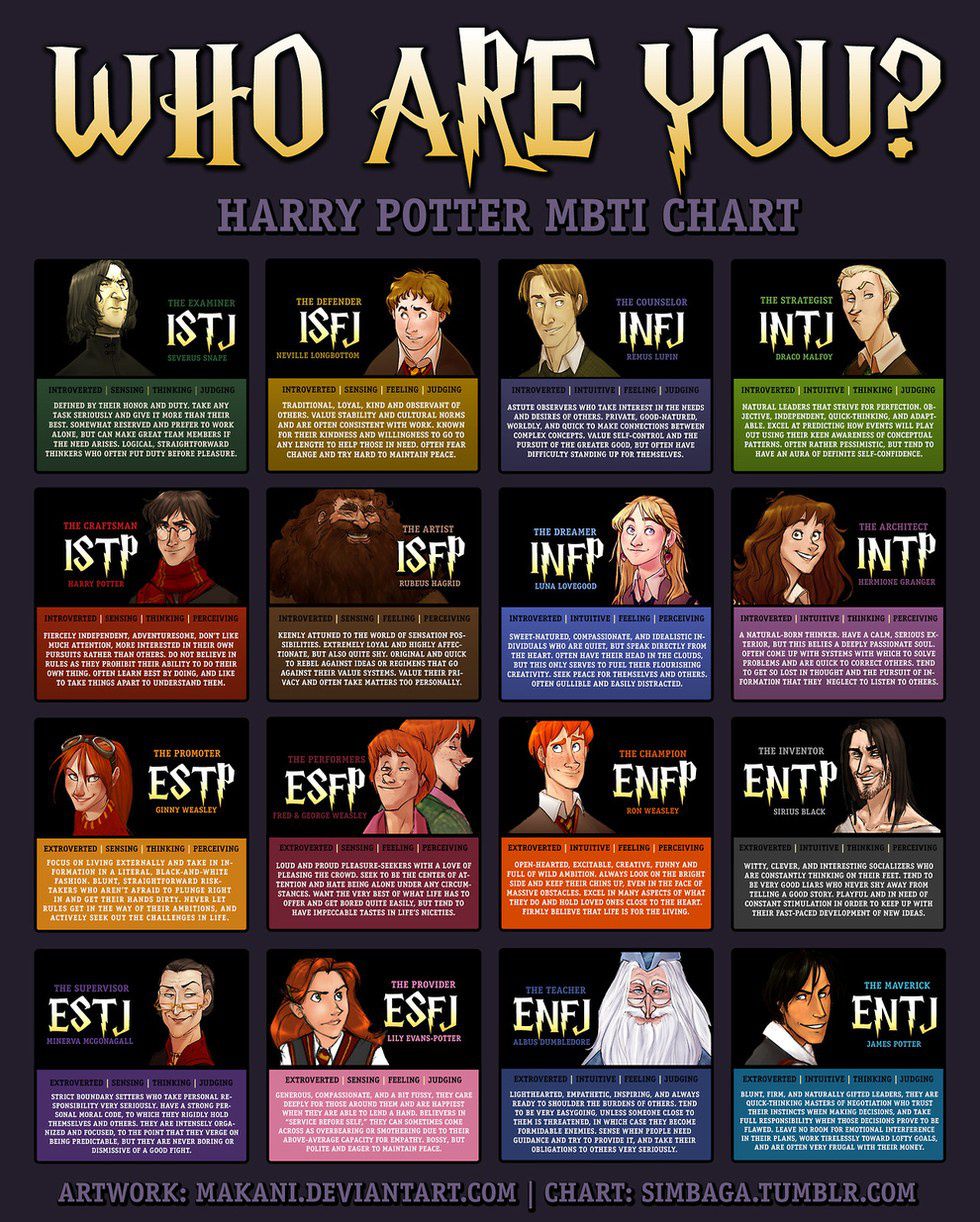What is your MBTI type? Many people have heard this question drifting around even outside of Psychology 101 classrooms; some are self-proclaimed experts on the subject, while others are left very confused. According to the Myers & Briggs Foundation, the MBTI personality type indicator was created Isabel Briggs Myers and her mother, Katharine Briggs with the purpose of making C. G. Jung’s theory of psychological types more understandable and useful in people’s lives. This theory claims that seemingly-random behavior is actually organized and consistent due to some basic differences in how individuals use perception and judgement. There are 16 personality types based on combinations of different categories: extraversion (E) and introversion (I), intuition (N) and sensing (S), thinking (T) and feeling (F), and judgement (J) and perception (P).

“I've taken the test a few times and the results I get are different every single time. I have trouble answering the questions honestly because how I feel and act in certain situation varies wildly based on my mood and who I'm with. Also, I find that I'm somewhere in the middle in most of the categories. For example, I consider myself to be an ambivert instead of an introvert or extrovert,” stated Anne Shalamoff, one of the several Scripps College students who elaborated as to why they found the test accurate or not.
An article from Psychology Today analyzed why the MBTI test is ineffective, especially when judging how someone will perform in the workplace or in groups. Apparently, three-quarters of people obtain different results when tested again, and if there is a five-week gap between test-taking, the odds of getting a different personality type is at 50 percent. The article also states that the MBTI categories, like thinking and feeling, are made to seem like polar opposites even though the two are closely intertwined. Moreover, the test does not analyze how different people react under stress and pressure. The article concludes that the Big Five personality test is far more precise and useful.

“Note that there are many different tests for MBTI, so accuracy may vary on that alone. Also, many tests ask yes/no questions, resulting in a lot of missed nuances…context is always a factor... And the tests don't necessarily account for that,” added Alice Zhang.
This is a very important point. Not every test has the same accuracy because an analysis based solely off of yes or no answers is inadequate compared to that of a test which offers in-depth responses. My personal favorite is the test from Human Metrics because it has given me the most consistent results and has very detailed analyses of the different personality types. One version that is also popular is the one from 16 Personalities; however, I don’t really like this one because the results are often inconsistent, with the type changing almost every time I take it, and the analyses provided are not as thorough.
“Despite the test's extreme accuracy for me (I'm an INTJ through and through), I've found it easiest to view the MBTI as a way to start thinking about how people process information and situations rather than a be-all/end-all categorical analysis. It can be helpful for me to think "This person may be responding this way because they have a stronger F than T, or E than I, etc." and I can then adjust my response to them accordingly and, usually, with more empathy. There's that T thing on my part; gotta think it through first, then I'll feel it,” said Andrea Conover.
Jasmine Russell also explained further how the test and learning about the different personality types has helped her understand her own personal growth over the years, as well as what approaches to take with other people.
“I think that MBTI isn't supposed to be as objective or static as most people approach it. Personality varies widely from moment to moment because of different contexts, but I think it's accurate in the sense that it can be a great tool to use to know yourself and how you think better. It's also interesting to track the changes in your MBTI personality results over a longer period of time. When I came to Scripps, I was an ISFP, and now I am more of an INFJ. Also, I've found it most useful to use my results in relation to my friends'. For example, my partner is an INTP, and so it's useful for him to know that I'm sort of in-between an N and an S, whereas he's a super strong N, so he needs to communicate in more specific, concrete terms than he's used to,” she concluded.
Even though I know the MBTI test is not always accurate and should not be rigidly used to classify people’s personalities, because my result, INTJ, is fairly consistent and describes me well, I find it useful in understanding myself and analyzing my changing behaviors over time. Moreover, like the interviewed students said, the results have helped me to figure out how to better interact with other people and how to appeal to them based on their personality types. MBTI isn’t the best personality test, but I don’t believe that it is completely obsolete.




















